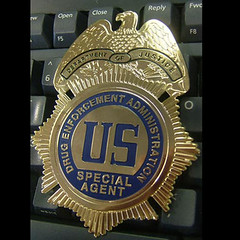Harry J. Anslinger, Commissioner of the Federal Bureau of Narcotics from 1930 to 1962, believed the plant caused murder and lunacy. He led a public campaign against the plant for four decades, but by the time he finished more people were smoking it than ever. In 1962, President John F. Kennedy named Anslinger ambassador to the United Nations, where he helped draft the Single Convention on Narcotic Drugs, one of three U.N. treaties that today define world drug control.
Next is Tricky Dicky, who brought the 1970 Controlled Substances Act, which created our drug-scheduling system. Did you know that in 1972,
The National Commission on Marijuana and Drug Abuse said about marijuana:
“We believe that experimental or intermittent use of this drug carries minimal risk to the public health, and should not be given overzealous attention in terms of a public health response.”
...The panel, along with the American Medical Association and the National Institute of Mental Health, recommended decriminalizing the possession and distribution of marijuana for personal use, and the American Bar Association called for reduced penalties. Nixon responded by rejecting the report, declaring “an all-out global war on the drug menace,” and creating the Drug Enforcement Administration (D.E.A.) by executive order in 1973.
Then we get to 1977 and Jimmy Carter and Peter Bourne:
He had campaigned on a platform of decriminalization, and he appointed his friend Dr. Peter Bourne as director of the Office on Drug Abuse Policy. Bourne made it clear that he believed marijuana was not a significant health-care problem and began to explore rescheduling it. The White House pushed the National Cancer Institute to make the drug widely available to patients, and in October the Senate Judiciary Committee voted to decriminalize possession of up to an ounce of marijuana for personal use. The tide of war was shifting.
What happened? Peter Bourne attended a party at NORML:
The incident was discovered... The Washington Post reported that Bourne had used cocaine and marijuana at the December norml party. Bourne resigned from his position at the Office on Drug Abuse Policy within 24 hours. Carter retreated from drug-law reform for the rest of his embattled term.
It all went downhill from there. On to Ronald Reagan, Rudy Giuliani and Joe Biden:
In 1980, Ronald Reagan shifted responsibility for the anti-drug effort from the health department to the Department of Justice. “I would say that this is the most intense federal effort ever against drugs,” said Associate Attorney General Rudolph Giuliani, who oversaw the D.E.A. and the Bureau of Prisons and who orchestrated expansion of the F.B.I. into drug enforcement. Senator Joe Biden began advocating for a Cabinet-level position to coordinate federal agencies—a “drug czar.” So began the era of “zero tolerance.” Reagan’s presidency reversed his predecessors’ drug-control policies, and funding for law enforcement rose to three times that for abuse-prevention and treatment programs.
And then, George H.W. Bush and William Bennett drove the nail in the coffin:
William Bennett, called for an “all-out war on drugs—with more resources for police, more prosecutors, more convictions.” Bennett was the first U.S. drug chief in 20 years with no professional expertise in health or science. He was also a heavy smoker—he went through two packs a day, or about one ounce of tobacco—and promised to kick his addiction upon taking office. In 1990, one year into his term, Bennett proposed extending capital punishment to “drug kingpins.”
I remember when Newt Gingrich echoed that call. But, moving onward, to Bill Clinton, Les Brown and Barry McCafferty:
Incarceration for drug-law violations increased 1,100 percent between 1980 and 2002, yet cocaine and heroin prices fell by 80 percent.
And then, G.W. Bush and John Walters:
The year 2001 brought George W. Bush to the White House. His czar, John Walters, allocated more than $100 billion to the war. Still, illicit drug use among adult Americans during the Bush administration remained unchanged. According to John Carnevale, former director of planning and budget at the O.N.D.C.P., “The strategy totally failed to achieve any progress in this key goal area.… Eight years were wasted.”
Finally, we're up to the present and President Obama and Gil Kerikowske:
President Barack Obama has called the war on drugs “an utter failure.” The drug czar he appointed, Seattle police chief R. Gil Kerlikowske, has pledged to “change the conversation on our drug problem” and abandon the “drug war” metaphor.
But not much has changed, particularly with respect to marijuana:
Obama’s 2010 budget, however, would allocate $15.1 billion to fund the Office of National Drug Control Policy–$1 billion more than President Bush’s final budget request. The plan calls for an increase in every aspect of drug-war funding except drug-use prevention (which decreases by 11 percent), and again the largest share of resources would go to domestic law enforcement.
So what has changed? When it comes to the most widely used illegal drug in the U.S., not much. “Marijuana is dangerous and has no medicinal benefit,” Kerlikowske recently said, contradicting the testimony of thousands of physicians and patients, not to mention the federal government’s own findings...
The sketches are really good, but the story is even better. Nice job by Richard Cortes.




